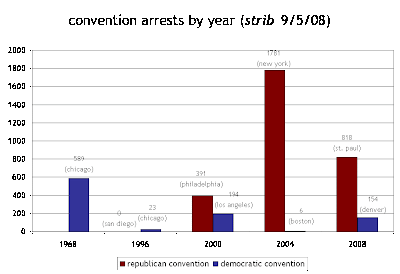 last year, the american psychological association passed a broad anti-torture resolution. this year, they voted to forbid members’ participation in interrogations where detainees are held outside of international law. psychologists are routinely involved in all manner of interrogations, so this resolution is more than a symbolic gesture — it likely affects the daily professional lives of at least some apa members.
last year, the american psychological association passed a broad anti-torture resolution. this year, they voted to forbid members’ participation in interrogations where detainees are held outside of international law. psychologists are routinely involved in all manner of interrogations, so this resolution is more than a symbolic gesture — it likely affects the daily professional lives of at least some apa members.
i’m not sure whether or how the policy will be enforced, but i’m guessing that sanctions will be a hot-button issue at the annual meetings. it may be the case that any formal sanctions could diminish the professional reputations or earnings of apa members. if so, there will be lawsuits and rumors of lawsuits.
from the press release:
APA MEMBERS APPROVE PETITION RESOLUTION ON DETAINEE SETTINGS
WASHINGTON—The petition resolution stating that psychologists may not work in settings where “persons are held outside of, or in violation of, either International Law (e.g., the UN Convention Against Torture and the Geneva Conventions) or the US Constitution (where appropriate), unless they are working directly for the persons being detained or for an independent third party working to protect human rights” was approved by a vote of the APA membership. The final vote tally was 8,792 voting in favor of the resolution; 6,157 voting against the resolution. To become policy, a petition resolution needs to be approved by a majority of those members voting.
Per the Association’s Rules and Bylaws, the resolution will become official APA policy as of the Association’s next annual meeting, which will take place in August 2009. At that time, the APA Council of Representatives will also determine what further action may be necessary to implement the policy.








